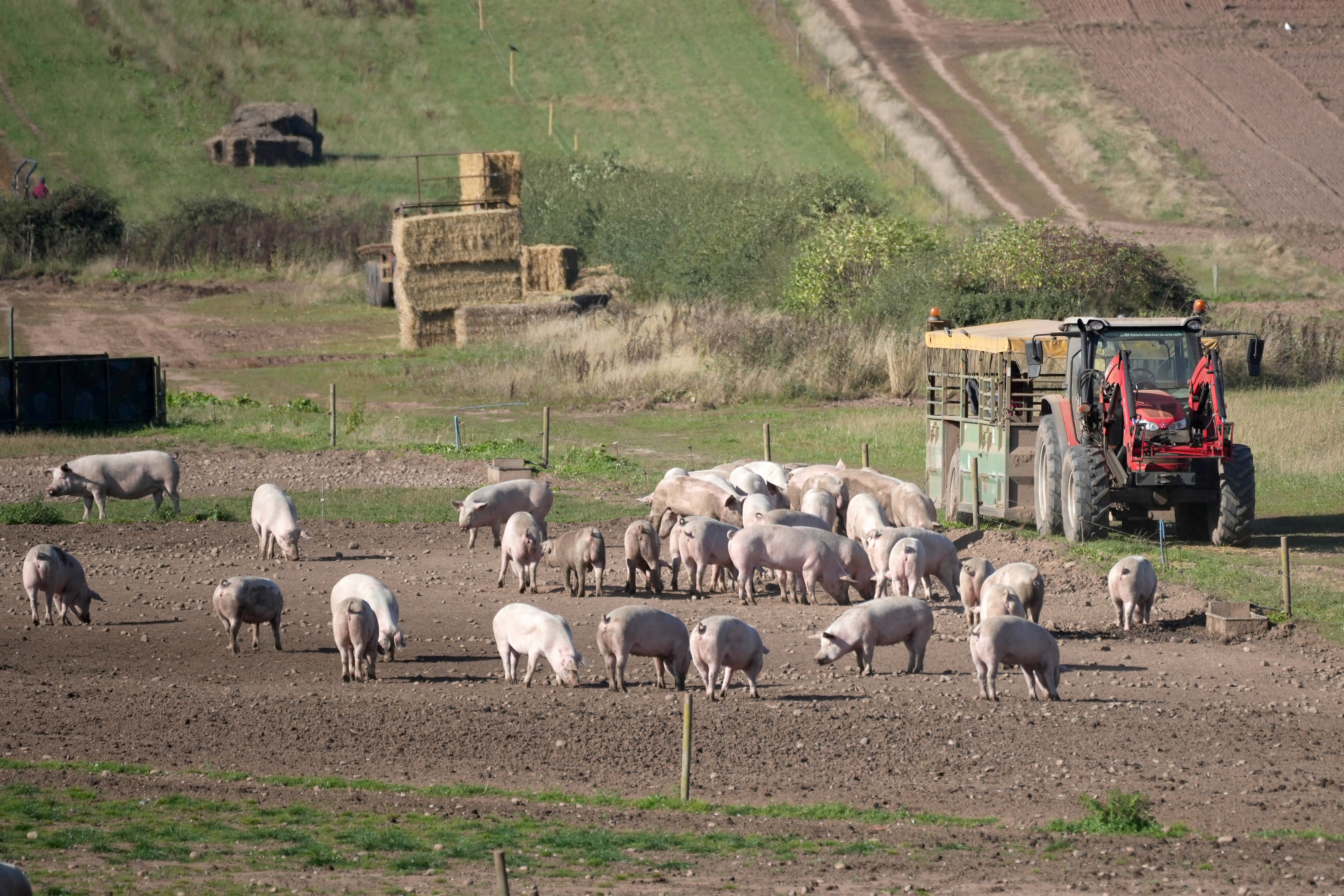Government’s post-Brexit farming plan ‘will increase UK’s reliance on food imports’
As changes wrought by Brexit slash and burn £1.8bn of direct payments to English farmers by 2027, experts warn that government optimism over agriculture in England is dangerously misplaced

The “blind optimism” shown by government ministers in their plans for the future of England’s farms could result in many small and tenant farmers being forced out of business, a parliamentary report has warned.
In the wake of Brexit, farmers in England are set to see direct payments – worth £1.8bn in 2019/20 under the EU’s Common Agricultural Policy – slashed by more than half by 2024/25 and removed entirely in 2027 as the government shifts to a new regime intended to boost productivity and improve stewardship of the countryside.
But a House of Commons committee report said that George Eustice’s Department for Environment, Food and Rural Affairs (Defra) has not yet done enough to gain farmers’ trust in its ability to successfully deliver the programme.
And it said ministers were over-optimistic about the likelihood of making English farms more productive.
The end result of encouraging farmers to free up land for environmental purposes – such as woodland – is likely to be that England ends up importing more of its food, often from countries with worse environmental standards than Britain, said the report from the cross-party Environment, Food and Rural Affairs Committee.
This would not only force up prices in the shops, but also make Britain more reliant on food from abroad.
With the average farm making a net profit of just £22,800 a year without subsidies, the committee said it feared that many small and tenant farmers operating on wafer-thin margins could be forced out of business.
This was likely to mean an increase in the average size of farms, with a consequent loss of environmental benefits.
Defra plans to match the overall £2.4bn in subsidies provided annually by CAP to England’s farmers, while steadily reducing the proportion going in direct payments, based on the amount of land farmed.
Under the Sustainable Farming Initiative (SFI) and Environmental Land Management Scheme (ELMS), an increasing share of the cash will be linked to improving the environment, protecting the countryside, boosting the productivity of the farming sector and enhancing animal health and welfare
But the report found that the scheme was “beset with many of the same issues that have undermined ambitious government programmes in recent years”.
A lack of information from Defra had left farmers unable to plan and was causing anxiety, exacerbated by a historic lack of trust caused by past failures in managing farm payments, the MPs said.
Committee chair Sir Geoffrey Clifton-Brown, the Conservative MP for the Cotswolds, said: “We have known we were replacing the CAP since 2016 and still we see no clear plans, objectives or communications with those at the sharp end – farmers – in this multi-billion pound, radical overhaul of the way land is used and, more crucially, food is produced in this country.
Farmers had been “left in the dark”, with failures in Defra’s business planning undermining the certainty they need, said Sir Geoffrey.
And he warned: “The UK is also already a large net importer of food and we heard in evidence that the ELMS’ vague ambition to ‘maximise the value to society of the landscape’ may in reality mean that increases further. The recent energy price crisis should be a salutary warning of the potential risks to the availability and affordability of food if the UK becomes even more reliant on food imports.”
Labour’s shadow environment secretary Jim McMahon said the government was “falling far short” on support for farmers, with “trade deals that undercut our rural businesses, leaving them exposed and rightly feeling let down”.
“Just this week, the environment secretary tried to dodge responsibility for making sure farmers get a fair deal from major retailers, despite rocketing food and production prices,” said Mr McMahon. “For our country to thrive, we need to see more food grown at home, to a high standard and through sustainable processes – but the government isn’t listening.”
But Mr Eustice said Defra disagreed with many of the report’s points, which he said failed to take account of recent developments.
“Farm incomes have improved significantly since the UK voted to leave the EU in 2016 and there will never be a better time to improve the way we reward farmers,” said the environment secretary.
“In December, I set out comprehensive details of the Sustainable Farming Incentive, including full payment rates, and we published an in-depth analysis of UK food security and agricultural output.
“In the past week we’ve shared further details of the Local Nature Recovery and Landscape Recovery schemes and announced a major increase in payment rates for those farmers involved in existing agri-environment schemes.”
Join our commenting forum
Join thought-provoking conversations, follow other Independent readers and see their replies
Comments
Bookmark popover
Removed from bookmarks